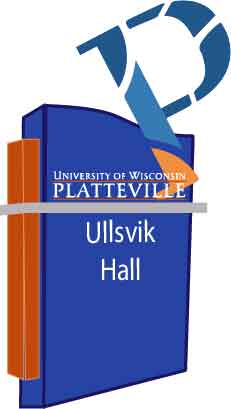New cycle of planning begins at Ullsvik Hall
2019-2024 Strategic Plan incorporates Baraboo/Sauk and Richland.

Elizabeth Kaiser graphic
The 2019-2024 strategic plan is another five-year outline the university uses to organize, grow and improve the campus’ ability to teach and provide services. The last cycle ended with the acquisition of the Baraboo/Sauk County and Richland Center campuses. This new cycle will be addressing the needs of those campuses as well. Each cycle has a year of planning beforehand where the Strategic Planning Steering Committee gathers ideas and feedback from across the university to plan on how to improve campus.
“Strategic planning is really about identifying where an organization is right now, where does it want to be and how do we get to that desired state. So the 2019-2024 strategic plan is thinking about, as a university, where do we want to be in the next five years and what are some of the ways we can make that happen.” Chair of the strategic plan steering committee, Victoria Livingston, said.
Outlining the details of the plan is the third phase of preparation and is where the steering committee is currently. The first phase took place from last September to this January and was focused on identifying goals for the university. The second phase which was from January to February focused on gathering input from the campus community. The third phase is projected to last until April and is focused on making a “To Do” list that will become the overall 2019-2024 strategic plan. The fourth and final phase will run from May to June. This will be concerned with finding the resources and help to implement the 2019-2024 strategic plan.
“The previous plan was the 2013-2018 strategic plan and that planning cycle ended in July of 2018. We’ve been spending this year thinking back on the work and growth that happened over those five years in addition to the integration of the three Platteville campuses as we consider what it is we want to look like over the next five years. The previous plan reached its conclusion, which led us now to planning for the next five years,” Livingston said.
The “Success Factors” of the 2013-2018 plan were reducing costs on campus by a total of $9 million over those five years, increasing the university’s rating on staff and student survey’s and increasing the graduation rate of 4-year and 6-year graduates.
For this coming cycle, the strategic plan will include the satellite campuses at Baraboo/Sauk county and Richland Center, which were both integrated into UW-Platteville in July 2018.
“This strategic plan will encompass the entire university. That includes the Platteville campus, the Baraboo-Sauk County campus and the Richland Center campus. As well as thinking about both our on ground education we provide to students as well as online and distance education. It’s a holistic plan for the university,” Livingston said.
With such a large goal, the Steering Committee has sub-committees that prioritize academic expansion, student retention, recruitment of students and faculty, fiscal planning, corporation and community partners and campus climate.
Each sub-committee has faculty and student representation, including the Steering Committee. Also, each sub-committee is supposed to collaborate on aspects of the strategic where there is crossover between the sub-committee’s goals.
“Just about everything crosses over a little,” Chair of the Academic Experience sub-committee Susan Hansen said. “Everything academic influences everything on campus. Whatever happens in the classroom influences the rest of campus.”
Some reoccurring parts of the strategic plan, like academic advising, that show up in each cycle make the plan difficult to make because of their multifaceted nature. To improve academic advising each step of the process needs to be addressed, students would need more help and faculty would need more training.
“There are committed faculty and staff willing to talk through those hard questions. I’m sure we can handle it,” Livingston said.
At this point the Steering committee is waiting for last minute feedback to come in from this campus and the satellite campuses. When asked how they choose which concerns to focus on Livingston said, “almost everything is in the plan. It’s reflective of passions and concerns from the entire university



